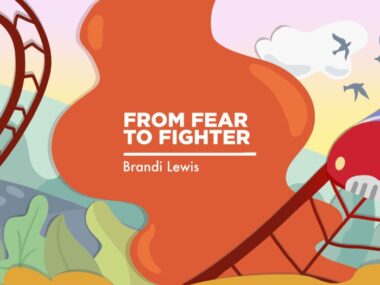When I share my story, I’m helping others — and myself
The benefits of telling people about my journey with rare blood disorders
Written by |

It takes courage to be vulnerable, especially when sharing your story with strangers on the internet. After being diagnosed with aplastic anemia and paroxysmal nocturnal hemoglobinuria (PNH), I’ve seen the impact storytelling has had on my life. We’ve all experienced moments that made a monumental impression on us. The resulting feelings can either help us grow into better people or take us down a road that’s not so positive. Either way, those experiences shape who we become.
Stories have power! They can invoke emotions and change someone’s way of thinking. Even one profound sentence could unlock something in a reader or listener.
There are also benefits for the storyteller. In my column “Sharing my PNH story has led to more opportunities to share,” I discussed how the power of storytelling changed my life. I feel comforted knowing that my story has touched and helped others.
The other day, I spoke with a mother who told me her son was sick and facing kidney failure. At that moment, I felt her vulnerability in reaching out. It gave me compassion for what her family must be facing. I was also grateful that I could be there for her, as I remembered times when my own mother cried to others about my illnesses.
When a piece of someone’s story resonates with us, we become interested in learning more. Hearing others’ stories can help us feel less alone.
How to share your story
My family and I began sharing my story when I was diagnosed with my rare blood disorders. Our mission is to educate others about what it’s like to live with aplastic anemia and PNH. I have become passionate about spreading awareness while also helping patients.
I’ve partnered with Be The Match (now the National Marrow Donor Program) and held multiple drives to encourage people to join the registry. My efforts resulted in three matches, allowing three donors to save a patient’s life. My passion grew as I witnessed these success stories.
I’ve also given speeches and spoken with college students, teachers, Rotary Club members, and anyone who will listen. Sharing my story at smaller events helped me feel more comfortable with public speaking. In 2019, I gave a TED talk called “What your sick friends and family really need most from you.”
As I kept telling my story, more doors opened. I was given opportunities I had wished for, but never thought would happen. Stories have taught me that we are all humans living in an imperfect world.
Words are powerful, and everyone has a story to tell. We’ve all overcome something and are figuring out life one day at a time. If you don’t know how to share your story, start small and take note of the impact it has on your life and others.
Note: PNH News is strictly a news and information website about the disease. It does not provide medical advice, diagnosis, or treatment. This content is not intended to be a substitute for professional medical advice, diagnosis, or treatment. Always seek the advice of your physician or other qualified health provider with any questions you may have regarding a medical condition. Never disregard professional medical advice or delay in seeking it because of something you have read on this website. The opinions expressed in this column are not those of PNH News or its parent company, Bionews, and are intended to spark discussion about issues pertaining to paroxysmal nocturnal hemoglobinuria.





Leave a comment
Fill in the required fields to post. Your email address will not be published.